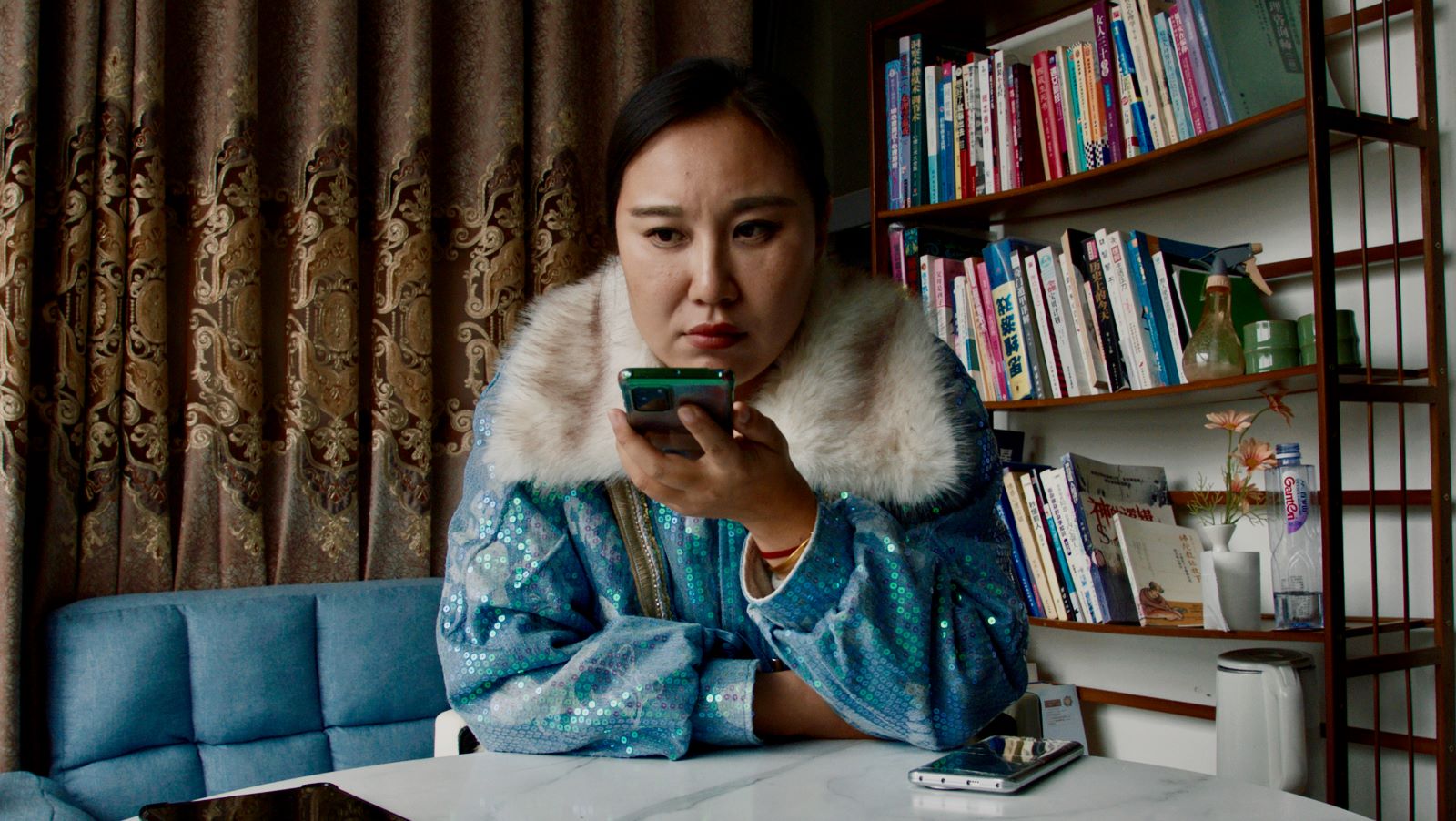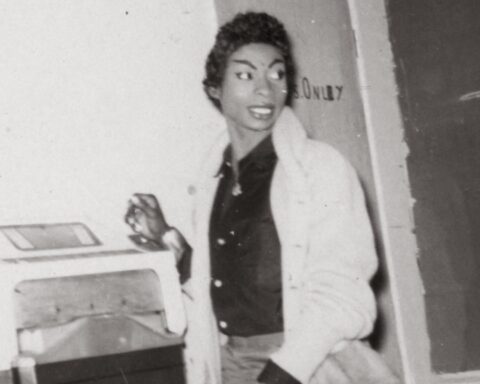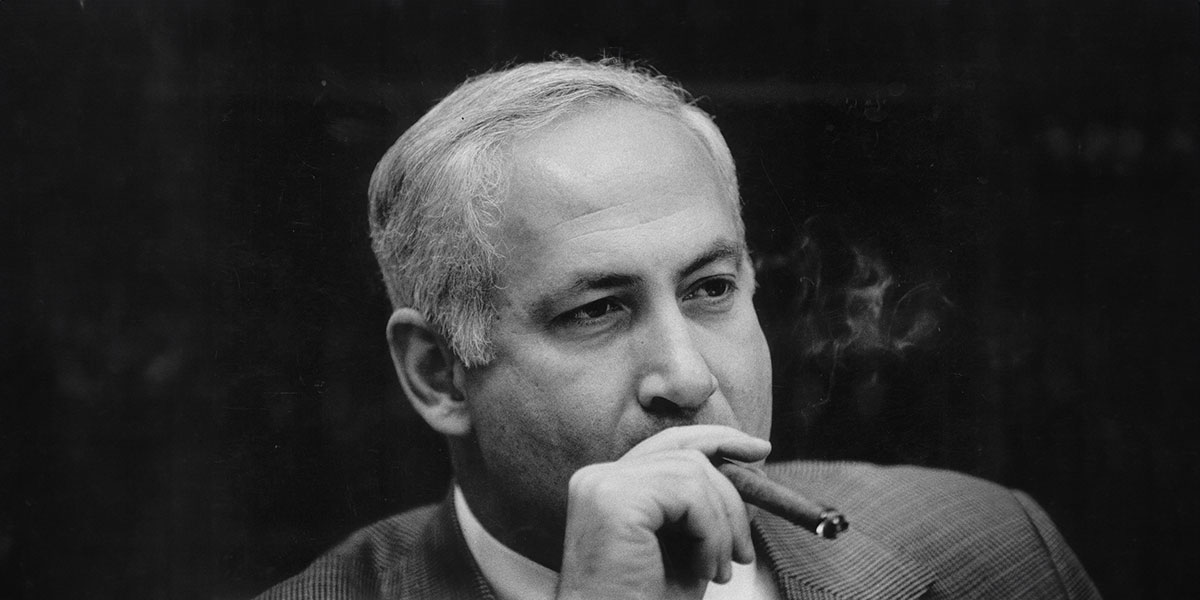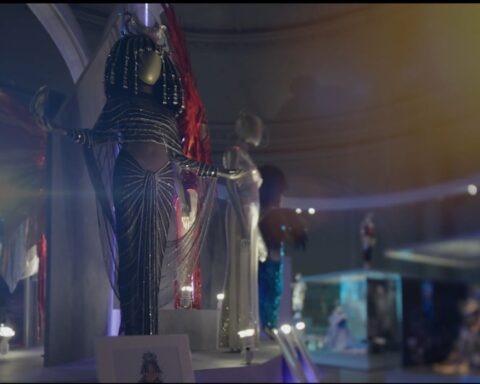“I was constantly amazed by how people were willing to behave in front of the camera,” says Mistress Dispeller director Elizabeth Lo. Speaking with POV via Zoom from Hong Kong ahead of the film’s North American premiere at the 2024 Toronto International Film Festival, Lo reveals how she captured such a spellbindingly intimate tale. Mistress Dispeller tells the story of a love triangle in China in which worried wife Mrs. Li hires Wang Zhenxi, a “mistress dispeller,” to save her marriage.
The titular character, known respectfully by invested parties as “Teacher Wang,” plays a unique role in China’s marital economy. Teacher Wang gains access to the husband with the intent to befriend his mistress and then convinces her to end the affair. Lo finds in the connected tale of these four parties a uniquely provocative love story for the documentary crowd.
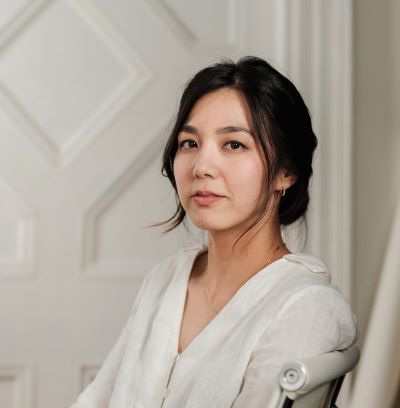
“As a director, I always tried really hard to make people feel comfortable and not judged because that was the whole conceit of this film: to understand the perspective of everyone in a love triangle and why they’re choosing to do what they do,” Lo says.
Mistress Dispeller marks a significant sophomore feature for Lo after her debut feature Stray (2020) deftly observed the lives of street dogs in Turkey. Stray, which won Best International Feature at Hot Docs, draws upon an innate sensibility for cinéma vérité through which Mistress Dispeller finds its quiet power. Lo’s latest work solidifies that she’s one of the most exciting new voices in documentary.
A documentary love story
But following dogs with the messiness of human connection is no easy task. “I’m biased, but I think dogs are much easier to film with,” says Lo when asked about the challenges of observing people and dogs. “But humans are great to film with too.”
Yet dogs and humans have very different perceptions of the camera, which comes into play here. “Obviously dogs are very unselfconscious. They don’t care about how they’re going to be seen, which makes them incredibly easy subjects to film,” observes Lo. “Humans are very aware of media and their own representation within a piece of media, and that always made it challenging. But in terms of this film, what makes the scenes interesting is that tension between what they’re presenting as themselves—what their real emotions are and what they’re trying to do with each other—but they’re also always aware of the camera being there and sometimes forgetting the camera’s there.” Mistress Dispeller unfolds through a series of restrained long takes to offer a quotidian portrait of marriage and infidelity.
Lo says the inspiration for film came from looking at her Hong Kong roots, her fascination with love stories, and her desire to connect the two. There is understated tension in these vignettes in lieu of dramatic fireworks.
“I wanted to portray a kind of love that was more specific to the way emotion is expressed in my own culture,” she says. “I was also interested in how women navigate Chinese society. By following the perspective of a mistress, it might reveal something about the way love and family is structured.”
Casting the doc
The film draws upon a daunting casting process that began once Lo learned of the occupation of mistress dispelling—a practice that’s grown in accordance with rising divorce rates and the costs associated with them. The casting is twofold. Once Lo connected with Teacher Wang and secured a mistress dispeller who was willing to share an occupation in which relationships and reputations are at stake, she says casting continued with the cases that landed on Wang’s desk.
“We started filming in 2021, and we filmed with multiple cases and various clients over three years,” Lo explains. “The couple that you see in the film is the couple that we got the richest and deepest access with and who chose to remain in the film by the end of the process. There were several couples that we filmed with who opted to drop out in the middle of the filming process or the mistress dispelling process.” Through a patiently laborious effort trial and error though, Lo finds in Teacher Wang’s case with Mrs. and Mr. Li a thorough portrait of the “dispelling” process.
Lo admits that fits and starts were inevitable with a project like this one. She says that things didn’t work if a mistress declined to participate or if a couple got cold feet in sharing such an intimate window into their marriage. “We always respected that choice, and we always knew that that was the risk of pursuing this subject matter,” Lo says. “We knew we had to be ethical in our approach as filmmakers because there’s deception involved at the beginning of the process.” Lo says that participants were approached with the premise of making a documentary about modern love. The statement isn’t untrue and is vague enough to facilitate the extraordinary access the film enjoys.
Access and intimacy
“We didn’t want to interrupt Teacher Wang’s normal workflow either, but by the end, we had to always let the participants know what the film was about and the nature of Teacher Wang’s work,” says Lo. “It was a years’ long effort to cast Mr. and Mrs. Li and Fei Fei [Mr. Li’s mistress] who were so generous and unselfconscious in allowing us so deeply into their lives. That’s just chemistry that you have with participants where the more we filmed with them, the more they allowed us into their lives.”
What follows are episodic glimpses into a disintegrating marriage. There are loving matches on the badminton court, followed by tense bickering at the dinner table. Paranoia surrounding cellphone usage abounds, while intercepted texts and messages yield breakthroughs. Meanwhile, Teacher Wang finds an unlikely companion in Fei Fei, who casually lets a new friend into her life.
Lo adds that the long process of observing Teacher Wang’s cases helped bring the sense of trust with Mrs. Li, who initiated the case. Mrs. Li’s brother appears throughout the film and had actually been one of Lo’s previous participants. “We had filmed with him two years before because he himself was a male mistress who was being dispelled by Teacher Wang,” explains Lo. “He had a good experience with us and also knew how effective Teacher Wang was at her work, so when his older sister, Mrs. Li, was being cheated on, he recommended that she work with us and that Teacher Wang could help solve her marital problem.”
Confronting secrecy and shame
Lo says that the motivation for each party is key and among the reasons why the Lis’ case told the full story. “In talking with Teacher Wang and agreeing to participate in the film, she really believed that by sharing her private struggles publicly, that it would help other people who are going through the same issues, usually in secrecy and shame,” Lo says of Mrs. Li. The director notes that Li’s husband participated with a sense of duty and obligation, something she saw among men who felt pressure to please their wives after disappointing them.
One facet of Mistress Dispeller that makes it such a revelatory feat of filmmaking is the openness that Mrs. and Mr. Li and Fei Fei share with infidelity, which is usually a secretive affair. “Fei Fei told us that she believed that this might be a document of her own love story in which she’s the central character,” explains Lo. “I think on some level, she truly believed that she could win by the end—that she would be the one to win the husband’s affections.”
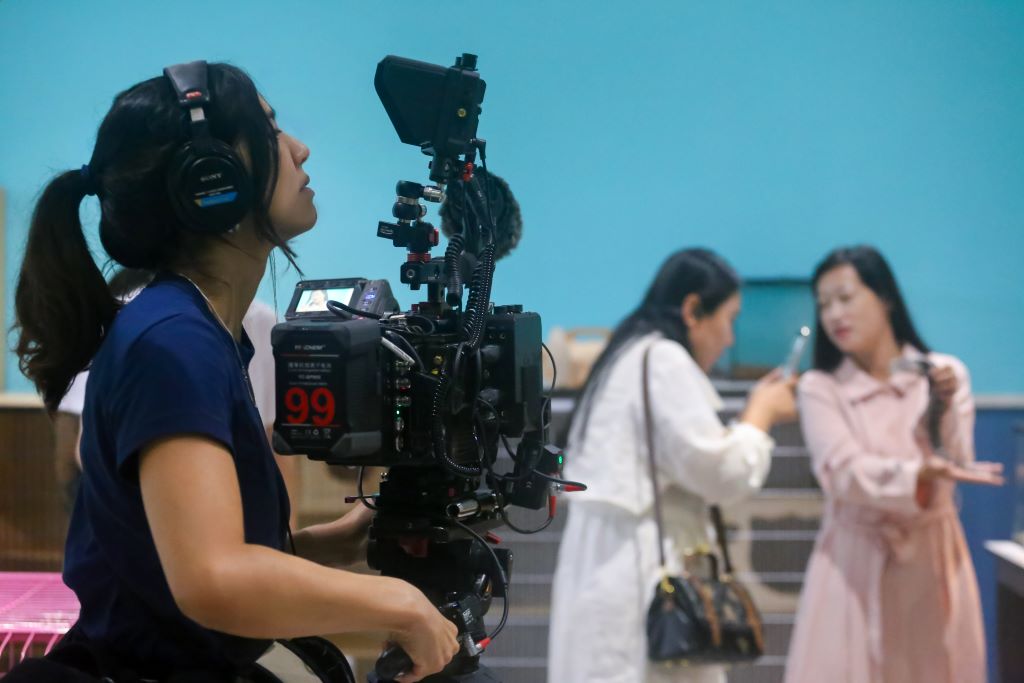
While the openness on display here may prove mind-boggling to some viewers, Lo notes that it was consistent with the various love triangles she shot over the years. Lo admits to witnessing some brazen behaviour, like one case prior to the Lis in which a husband and his mistress lived in the same building. Lo says she saw them in action when the wife left to get groceries and, standing there with her camera, she saw the husband make a move on their neighbour.
“I think people just make strange choices in life,” Lo admits. “Maybe on some level, if you’re not deeply ashamed by cheating, then you don’t think that it’s something to really hide. I think that’s part of why the husbands agree to be documented in having an affair, because on some level they’re not so ashamed.”
The fly on the wall
Lo draws inspiration from Chantal Akerman’s landmark portrait of domestic life Jeanne Dielman (1975) for the patient long takes through which the film observes the dispelling process. The film has a jarring nakedness to the conversations that play out in full. Lo’s camera takes fly-on-the-wall cinema to new heights with the intimate access the film receives.
The director says that the unconventionally long takes serve a practical purpose. Camera movements and calls to cut could risk distracting the participants. Lo explains that she would set up the camera once she knew the participants’ seating arrangements and then leave the room with the crew. “These scenes are so sensitive and intimate. We couldn’t predict how they would unfold,” Lo says. The Lis would therefore carry on, bearing their hearts to one another, forgetting that cameras are rolling. (And, in some cases, following Teacher Wang’s prompts to guide the situation.)
Lo says the approach also works on levels both artistic and ethical. “They’re giving them room to reveal themselves and feel comfortable on set,” notes Lo. “Human beings are such complex communicators, and often what we say is not what we mean. I wanted audiences to have the room to watch the arc of a conversation unfold uninterrupted as much as possible so that you can hang onto every word or gesture and debate its meaning as these people are coming in conflict or trying to connect with each other.”
Breaking the wall
There’s one genuinely revelatory moment late in the film, however, when the characters break the fourth wall. Mrs. Li and Teacher Wang side-eye the camera and suggest they make a battle plan before shooting. The women leave the room, still miked, and strategize. It may be the most effective moment in Mistress Dispeller. The interruption makes clear the stakes for each party.
Lo says she could have included more instances of breaking the fourth wall throughout the film. “My editor, Charlotte Munch Bengsten, and I made a very conscious choice to edit the footage as if it were a fiction film, so that you can really invest in each of the characters and be drawn to what is going to happen to them in terms of the plot. We didn’t want this whole mistress dispelling phenomenon to seem like a strange spectacle that you’re judging from afar. We wanted audiences to be in it and not thinking about the filmmaking process so much until we finally break the fourth wall in the third act and reveal the reality of how Ms. Wang deals with her clients and also us,” Lo explains.
“As Ms. Wang became more comfortable with us, she finally showed us that side of how she was dealing with her clients, which prior to that later moment, we were not privy to as filmmakers,” Lo continues. “That’s a very meta moment. You’re seeing the way in which Teacher Wang tries to control the outcome of a scene, but you also see how her clients deviate from the script. The slippages between what you’re supposed to say versus what comes out because of your raw emotions and how much you’re repressing because a camera is there, those liminal spaces are fascinating to watch.”
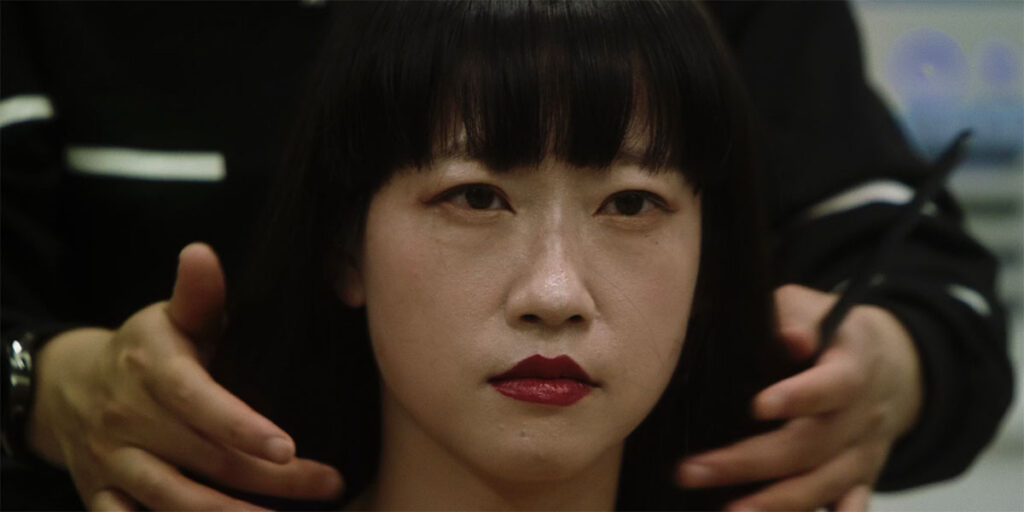
An equal triangle
What makes the story really work, however, is Lo’s ingenuity for giving each corner of the love triangle equal weight. Mistress Dispeller offers something of a Rashômon effect by providing multiple yet symmetrical perspectives on one situation. Lo recalls filming the tail end of one mistress dispelling process at the beginning of production and recognizing how moved she was by the husband’s sense of failure for cheating, but also finding empathy for the mistress.
“The backdrop of that Rashômon film has Japan going through national tumult and change, and China over the last 40 years is also going through huge shifts because of its rising economy and how that impacts family structure and nuclear family units,” says Lo. “In making this a love triangle and structuring the narrative as a triangle, it was also unconventional and would allow audiences to shift their allegiances as the film went on in unexpected ways. That was the experience I had when I was filming.”
Micro and macro
The observational approach refrains from judging the choices people make. Instead, Lo situates the gendered dynamics of the affair within China’s larger cultural context. Patriarchal roles still hold strong, especially for people of the Lis’ generation. But interludes between the observational scenes capture the unique industry of love and match-making that endures in a nation recently locked into the one-child policy. Successful marriages have enormous stakes, and Lo observes people speed dating, dialing into call centres, or, perhaps in the most novel sequence, browsing “marriage markets” to scan notices draped on because string. They advertise kids’ ages, occupations, virtues, and material possessions.
“We also chose to weave in forest landscapes and larger societal scenes where we’re seeing people trying to find their prospective mates we wanted to show how China’s larger environment is bearing down on the choices that the individual characters are making, whether it’s Fei Fei as a young woman who is single and in her thirties or the wife or the husband—why they would want to maintain the marriage despite what they’re facing,” explains Lo.
“I think the thirst for human connection is an eternal and primal feeling that we all have. It just takes on different forms depending on the society that you’re in or circumstances that you find yourself in,” adds Lo. “But at the heart of it is just this thirst for a genuine connection.”




